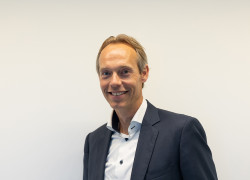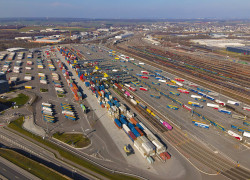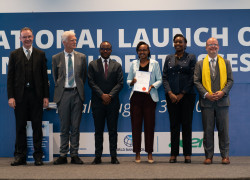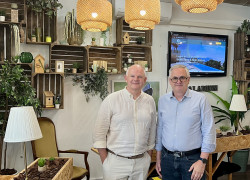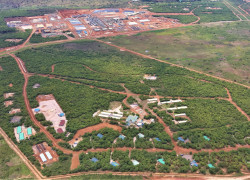Deloitte Luxembourg presents the 2013 survey on future HR trends
84% of global business leaders and human resources (HR) executives say organisations must look for creative ways to develop new leaders, as traditional leadership models are not keeping pace with today's rapidly changing work environment. This is according to the Deloitte Touche Tohmatsu Limited (DTTL) ‘Resetting Horizons: Human Capital Trends 2013’ report.
Given the importance of talent and people, it is time to move beyond instinct, gut, and tribal wisdom in making workforce decisions. Employers’ needs, expectations, and definitions of success now vary widely, rendering obsolete a one-size-fits-all approach to talent management. Meeting tomorrow’s business challenges requires new skills and different qualities — and fresh models for finding, developing, and engaging next generation leaders. Though the contingent workforce is growing in importance, many organisations may not be skilled at managing this workforce segment effectively
Filip Gilbert, partner and new Human Capital Leader at Deloitte Luxembourg
The survey of over 1,300 organisations in 59 countries, including Luxembourg, outlines 13 global trends that are driving critical business and human capital decisions.
Deloitte Luxembourg professionals took a closer look at the responses related to Luxembourg, providing a highlight on the key Luxembourg HR trends alongside the global top trends:
- Next generation leadership
The majority of organisations (84 %) say that developing future leaders is relevant now and in the next three years, but organisations must seek a new leadership model for the age of agility. "Although there is clear focus on developing the next generation of leaders globally, HR executives still need to develop a different approach around development. These strategies must be specific to the business. It's pervasive and organizations must commit to getting the best results."
- Accelerating organisational change
87% of respondents see the way in which organisations view change as a top trend. "In today's fast-paced environment, organizations need to adopt a new way of looking at change and become more results-orientated."
- The war to develop talent
86% of respondents reported the shift to development and upgrading skills as a critical trend.
In Luxembourg, businesses struggle to fill critical positions at many levels, independently of the current unemployment rates. As the requirements for the leadership pipeline change rapidly, companies are putting renewed focus on building capabilities, not just finding them. The ‘war for talent’ is shifting – and is becoming the ‘war to develop talent’.
This major trend first seems at odds with the Luxembourg market where vocational training has declined significantly over the last years: from 2007 to 2011, training investment by employee dropped by 26% and the average number of training days by employee has been reduced by 1 day 1.
However, as cost-cutting is having a major effect both on recruitment and training activities, HR needs to ensure continuity of its talent pipeline by conducting a future oriented assessment of the types of skills, insights, and experiences required. This planning will need to focus on new skills that need to be nurtured and developed in order to enable and support future business strategy.
- Boards are changing the HR game
82% of respondents say a growing number of boards are focusing on the role and impact of talent on business performance and risk. This is a step away from the previous focus of boards which was centred on CEO succession and setting compensation for the most senior executives.
Likewise, in Luxembourg, an increased board focus on risk is changing the game – focusing on the role and impact that talent has on business performance and risk. They know that developing strategy without considering the talent dimension creates risk in their business plans: talent is a core component of a company’s risk profile, including reputational risk, operational risk, regulatory risk, and financial risk.
- Transforming HR to meet new business priorities
85% of respondents indicated that organisations are developing HR capabilities that will not only support the business, but enable business strategy.
In Luxembourg, the recent restructurings and mergers, especially in the financial services sector, should be considered as an opportunity to change and improve HR processes, systems and practices for the new organisation: HR’s new capabilities should include the ability to effectively and reliably combine two distinct workforces into a truly integrated organisation in order to drive efficiency, productivity and employee satisfaction.
- The aging workforce
The aging workforce is a trend especially relevant to Luxembourg: Luxembourg has one of the lowest average retirement ages (58, 3 years 2). However, pension financing issues as well as the looming baby-boomer brain drain will have major impacts in the near future and will create the need to change the traditional view of retirement.
One approach for targeting this opportunity is to apply principles of workforce flexibility and career customisation, targeting workers as they near retirement age. Another major challenge for HR leaders will be to develop and support innovation and agility despite an aging workforce.
Filip Gilbert, partner and new Human Capital Leader at Deloitte Luxembourg, states: “Given the importance of talent and people, it is time to move beyond instinct, gut, and tribal wisdom in making workforce decisions. Employers’ needs, expectations, and definitions of success now vary widely, rendering obsolete a one-size-fits-all approach to talent management. Meeting tomorrow’s business challenges requires new skills and different qualities — and fresh models for finding, developing, and engaging next generation leaders. Though the contingent workforce is growing in importance, many organisations may not be skilled at managing this workforce segment effectively.”
The complete version of the 2013 Human Capital trends report can be downloaded from the Deloitte Luxembourg website at: www.deloitte.com/lu/hctrends2013
Communiqués liés
RSA launches technology and management liability insurance s...
RSA Luxembourg, part of Intact Insurance Specialty Solutions, today announces th...
Lancement d'une nouvelle connexion intermodale entre Bettemb...
CFL multimodal a le plaisir d'annoncer le lancement de sa nouvelle connexion i...
Experts from LUNEX award first micro-credentials in Rwanda o...
The Rwanda Ministry of Education (MINEDUC) formally inaugurated Syllabi, a publi...
ERG Notes that ENRC Secures Landmark Victory as Court of App...
Eurasian Resources Group (ERG), a leading diversified natural resources group he...
LetzToken et La Vie est Belle annoncent leur partenariat ouv...
«?LetzToken?», plateforme de tokenisation pionnière basée à Luxembourg, et ...
ERG announces a Pre-Export Finance Facility Agreement based ...
Eurasian Resources Group (“ERG”, “The Group”), a leading diversified nat...
Il n'y a aucun résultat pour votre recherche


